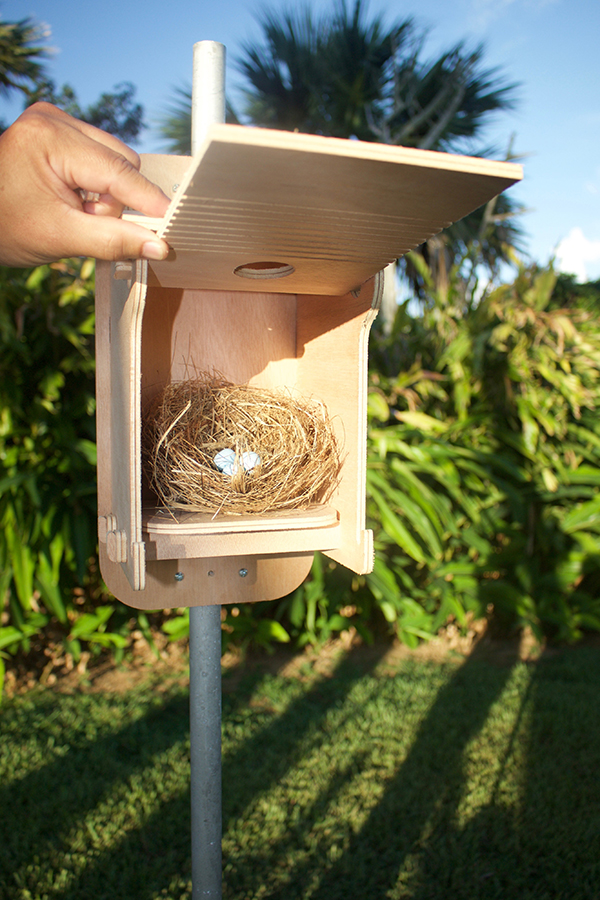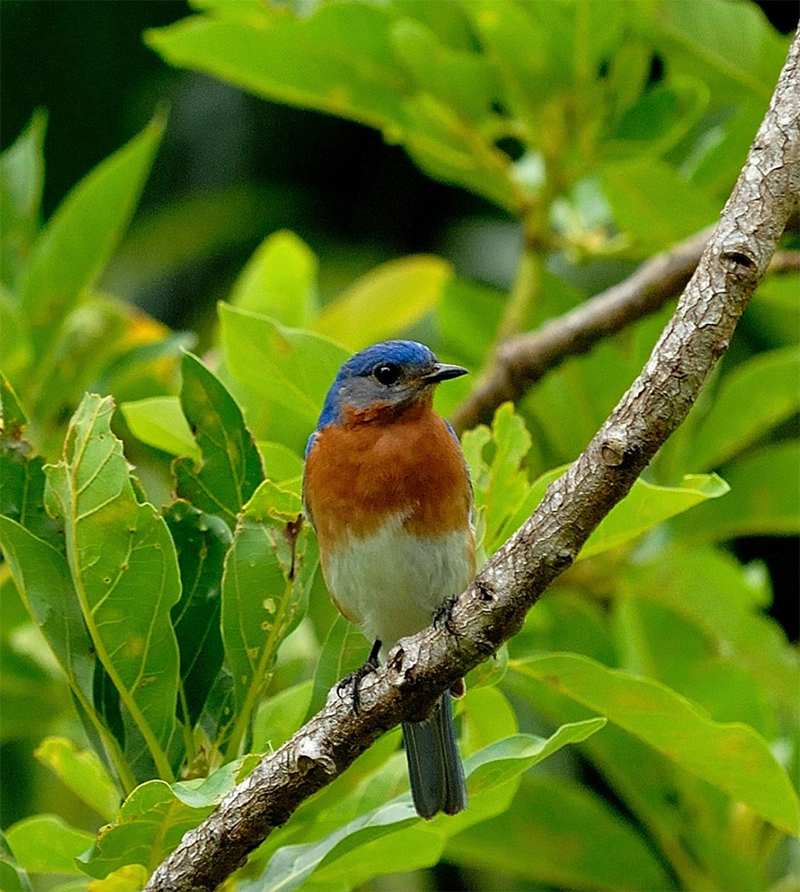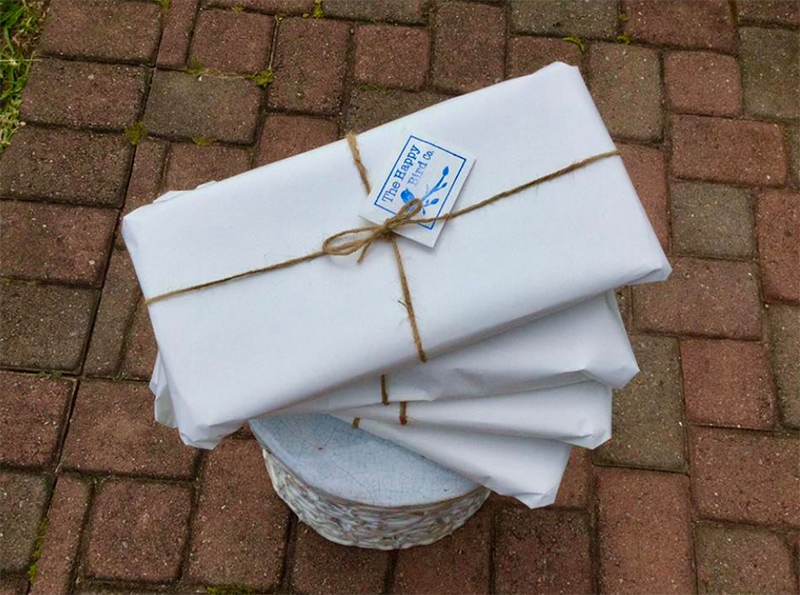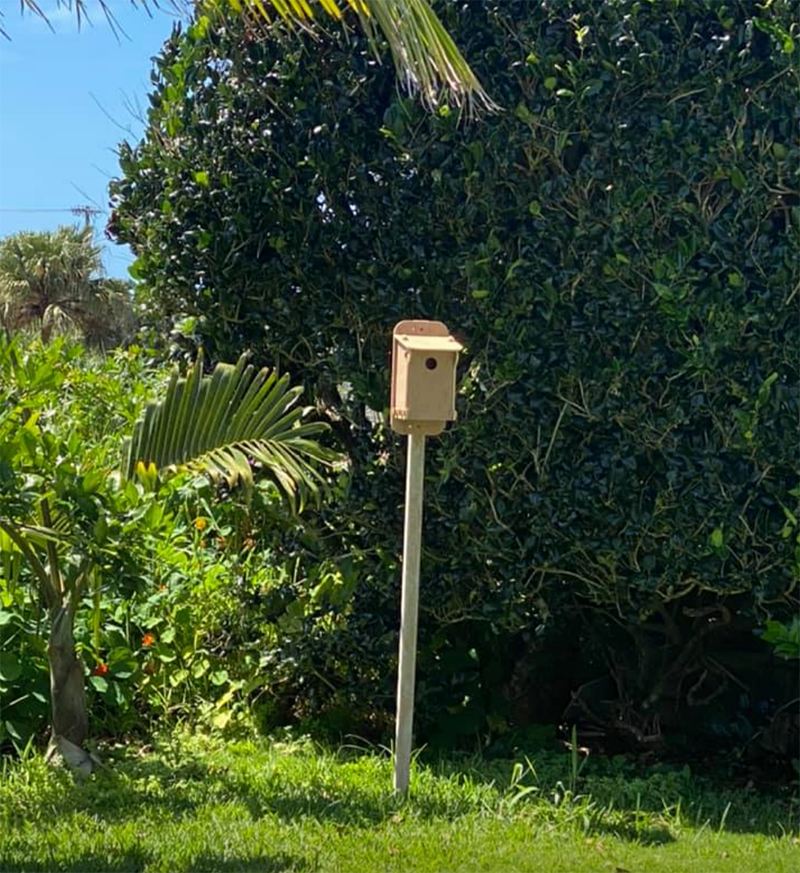Boxes Now Available From Happy Bird Company
The Happy Bird Company has new boxes available after being sold out, with curbside pick-up available for its customers.
A spokesperson said, “If bluebirds are a symbol of happiness, here’s some extremely happy news: The Happy Bird Company has made some new boxes after having been sold out for two weeks and curbside pick-up is now available.
“The boxes will help bluebirds with acquiring a new home for the rest of the nesting season. The nesting season is from March to August in Bermuda.
“The good news is just in time for many of the bluebirds who will be looking for new boxes to make nests.
“With the males’ brilliant blue plumage and flash of brick red on the breast, Eastern bluebirds were once common, but their population plunged starting in the 1940s and 50s when the local cedar forest was wiped out by a scale insect and then through to present day due to habitat loss, pesticides and competition from aggressive non-native birds like house sparrows and starlings.
“Happily for these small beautiful vibrant birds, human helpers have stepped in to tilt the odds back in their favour. All across Bermuda, bluebird lovers have put up dozens of nest boxes to give their feathered friends a much-needed boost.
“Bluebirds are well-suited to nesting in man-made boxes. They are what are known as ‘secondary cavity nesters,’ meaning they historically build their nests in holes in trees.
“In the absence of natural cavities, they will readily accept boxes. Unlike some birds which lay only one clutch of eggs each year, bluebirds are prolific breeders, laying two or even three clutches of up to five eggs. This helps compensate for the low survival rate of fledglings due to predators and disease.
“Want to help bluebirds by putting up boxes on your property or a public open space near you? For best results, make sure you do it the right way:
- “First, check that the bluebird box you buy or build meets design standards; a flimsy or poorly ventilated box could put bluebird chicks in danger and a too-large opening will allow bigger birds and critters inside.
- “Location, location, location! Bluebirds are insect eaters, so boxes should be next to open grassy areas with plentiful food sources, but with a tree or shrub nearby to provide a safe landing point above the ground.
- “Protect bluebirds from predators like rats and cats by mounting boxes on poles about 3’ to 6’ high.
- “Monitor bluebird boxes to learn what’s going on inside. If rats, mites, ants, wasps or other uninvited sparrows have taken up residence, evict them. Keep notes on key dates – when eggs are laid, when they hatch, when nestlings fledge.”
Company founder Christian Chin-Gurret said, “People believe in the environment and want to do something for bluebirds and what we do now will ensure that we will have bluebirds around for future generations to enjoy.”
For more information about The Happy Bird Company, or to contact them, please visit the Facebook page.
Read More About
Category: All, Environment, News







Mites can be driven out with a pinch of tobacco in the bottom of the nest, vaseline on the post to repel ants.
How can we get more of these installed at say Riddells Bay nature reserve? There are so many bluebird pairs over there right now but not many boxes.